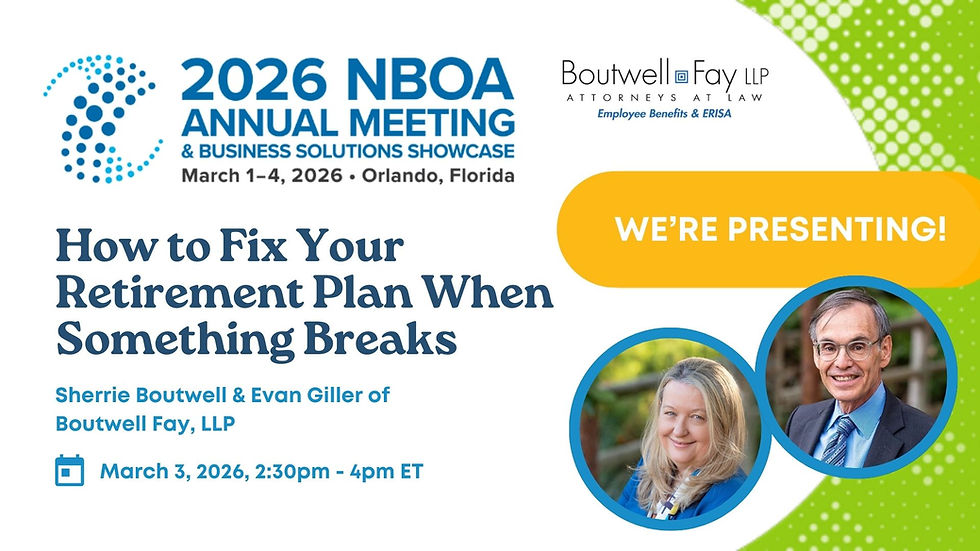Federal Court Rejects States’ Challenge to DOL’s ESG Investing Rule
- Boutwell Fay LLP

- Sep 28, 2023
- 2 min read
Environmental, social, and governance (ESG) considerations in plan fiduciaries’ decision-making processes have been the center of numerous discussions, policies, and legal issues for years. A recent ruling upholding the Department of Labor’s rulemaking is a surprise because it comes from a judge who is known for striking down regulations, so it is of particular interest to plan sponsors.
Background: On September 21, 2023, a Texas federal judge ruled in favor of the U.S. Department of Labor (DOL), upholding its final rule concerning the application of environmental, social, and governance (ESG) factors in investment decision-making by fiduciaries.
This decision came in response to a joint lawsuit initiated by 25 state Attorneys General and other stakeholders. The rule in question took effect on January 30, 2023.
The Ruling: Judge Matthew J. Kacsmaryk clarified that the proposal doesn't violate the Employee Retirement Income Security Act (ERISA) since ERISA doesn’t strictly prohibit ESG investing or its related tiebreaker tests. Judge Kacsmaryk further elaborated that the rule simply requires fiduciaries to act wisely, ensuring that financial interests are never marginalized when ESG factors are in play.
A notable point was the judge's observation that the DOL has seen ESG as a financial factor since at least 2015. He also pointed out that the DOL's recent rule was more about clearing the air around ESG considerations, emphasizing that while ESG can be considered, it's not mandatory.
Implications for Plan Sponsors: From our perspective, this ruling underscores the importance of regularly revisiting and reviewing your plan’s investment policy statements and investment offerings in light of recent developments.
Key Takeaways
Clarity on ESG: The ruling offers a clearer understanding of ESG in fiduciary decision-making. While it’s permissible, it’s not obligatory.
Action Item: Plan sponsors should review their investment policies and investment policy statements in light of this ruling and keep a record of what they reviewed and the resulting decisions.
Financial Interests Remain Supreme: While ESG can be an element in the decision-making process, the plan’s financial interests should never be secondary.
Ongoing Developments: Another lawsuit challenging the 2022 Rule, filed by two individual plan participants in the U.S. District Court for the Eastern District of Wisconsin, Milwaukee Division, is still ongoing.
In conclusion, as the dynamics of investing evolve with changing times and priorities, it's crucial for all stakeholders to stay updated, especially plan fiduciaries. This ruling highlights the importance of ESG and emphasizes the need for prudent decision-making in investment processes.







Comments